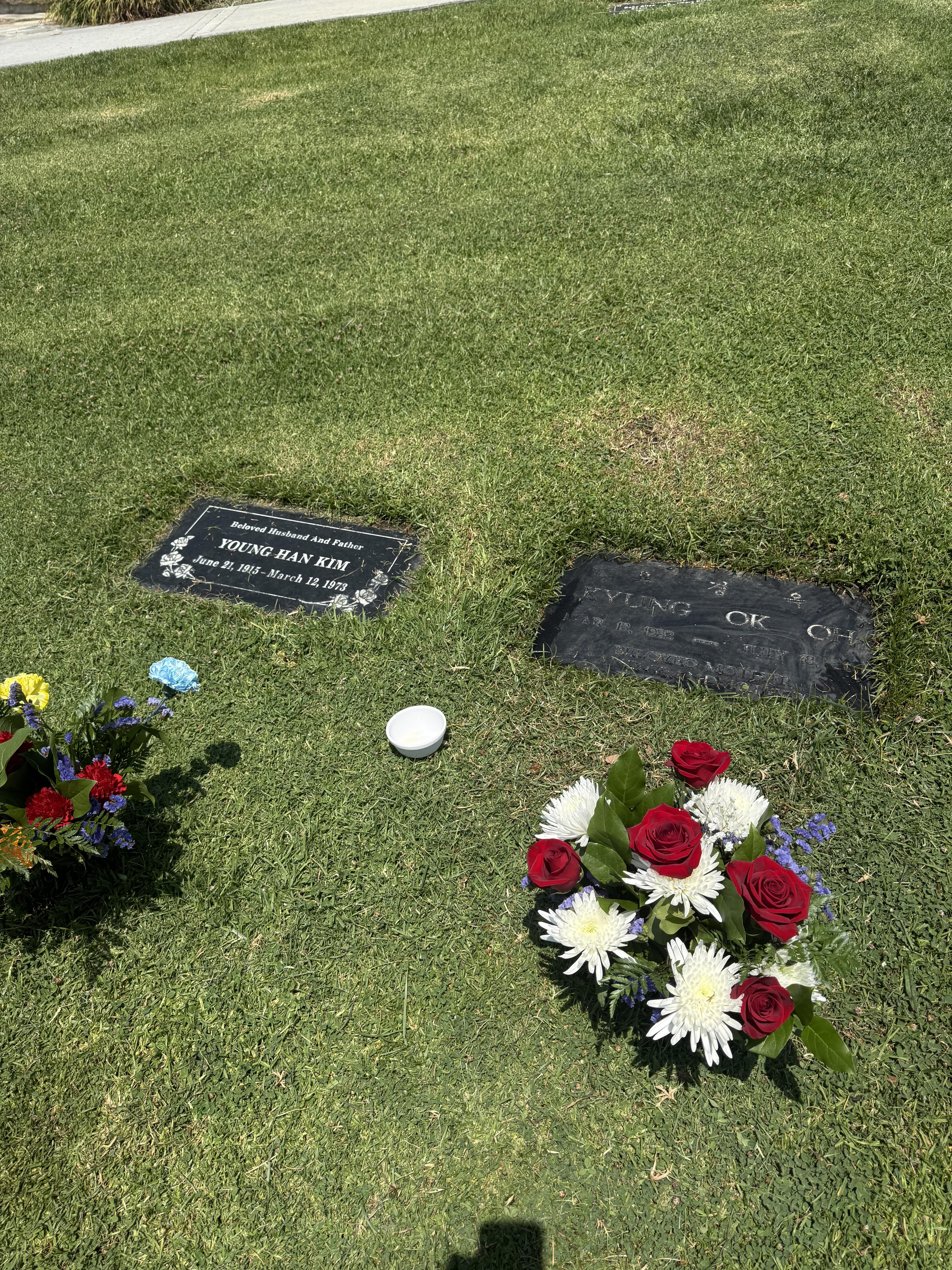Before it's too late
faraway places
September 29, 2025

I watched a Korean movie called (님은 먼 곳에) "My love is in a faraway place" when I was in the third grade. The movie used Kim Choo Ja's songs as the backbone. She is a South Korean singer, especially popular in the late 1960s through the 1970s. My brother would play that CD in my dad's old Lexus on the way to the nursing home where my grandma stayed. We'd listen to it ironically, but her "BEST 20" always found its way back into my music rotation all throughout my life. I found her songs strangely relatable and uncanny because I could draw parallels to her lyrics. Three songs really stand out to me out of her top 20 hits.
“님은 먼 곳에” (My love is in a faraway place)
As funny as this sounds, I feel that 2025, at my ripe age of 27, is the year I’ve come to understand how fast life is and realized my own mortality. And it's not that I see my own mortality in the mirror, which I still do, but I see it more accelerating in my parents. Seeing their smiles grow more wrinkled every year, seeing the tops of their hands turn thinner where the veins show under their skin, it gives me a sense that time really does fly. Over the years, it seems my definition of how far away something or someone is has changed. When I was a kid, a five-mile bike ride to the nursing home seemed very far away. When I was at UC San Diego, it felt far from home and from my parents. Traveling even farther to Berkeley expanded that definition. As I’ve gotten older, I’ve realized that many places seem far away only by distance and cannot compare to the “far away” of the intangibles: things like your past self, your past relationships, a younger version of your parents, even those people who’ve passed away. Those things are truly what is far away, not physical distance. If you think about physical distance, the maximum it could really be is just a plane ride away.
늦기 전에 (Before It’s Too Late)
There were periods when I didn’t talk to my dad. In high school, it was a full year. Then six months another time. And the most recent stretch was two and a half years. I didn’t speak to him at all. During those two and a half years, I thought about him every single day. Not obsessively, but quietly, like a presence in the background. My biggest thought was the regret I would feel if, during those two and a half years, one day my oldest sister or my brother called to say he had passed away. For a long time I was scared of my father. I was distant from him. Growing up I never really saw him smile. He was serious, with his jaw always clenched. You could see the muscles twitch at his jawline. But now he is becoming a grandpa. He still has his serious moments and when he gets upset, he lets you know exactly how he feels.
I realized that I probably never really smiled at him growing up. Spending time with him now feels like I am trying to build something new. Not as a child to a parent, but almost like a friendship in adulthood. Much like Kim Choo Ja, I’ve built this urgency in seizing love and closeness while I still can… before it’s too late.
이 밤이 가면 (If This Night Passes)
There are about six days in the year that I go to Rose Hills Cemetery. The cemetery is in Whittier, right by the 605 freeway. You get off at Peck Road and right down from the cemetery there is a flower shop. My father and I go together as much as we can. After we trim the grass overgrowth around the gravestones and put the flowers into the flower holder, I take the bottle of makgeolli and pour some into a bowl. He spins it two and a half times counterclockwise and sets it down. We bow two and a half times and he pours the makgeolli around the gravestones. Then it’s the next person’s turn. If my sister is there, she goes after him. Then my brother. Then me. If it is just me and my dad, then it is only us. The order is always the same.
When we finish we take a kind of recess. I sit by my grandma’s grave and look at the mountains. As I sit there, I daydream. Not just of where my grandmother might be, but of where the people I’ve loved have gone. Not only in the literal sense of distance, but in the way time separates everyone. I imagine a faint picture of someone on the far side of a mountain, under a rainbow, waiting. Maybe it’s my grandmother, maybe it’s someone I once loved, maybe it’s no one at all. Kim Choo Ja’s line, “이 밤이 가면 뛰어가볼까?” (“If this night passes, should I run to you?”) lingers in my head like an unfinished sentence. I don’t know who “you” are. It might be my past lover in Korea, my parents, a friend I haven’t seen in years. But the feeling is the same: a moment when longing almost becomes motion, when you’re right on the edge of standing up and running toward someone, somewhere, before the moment dissolves.